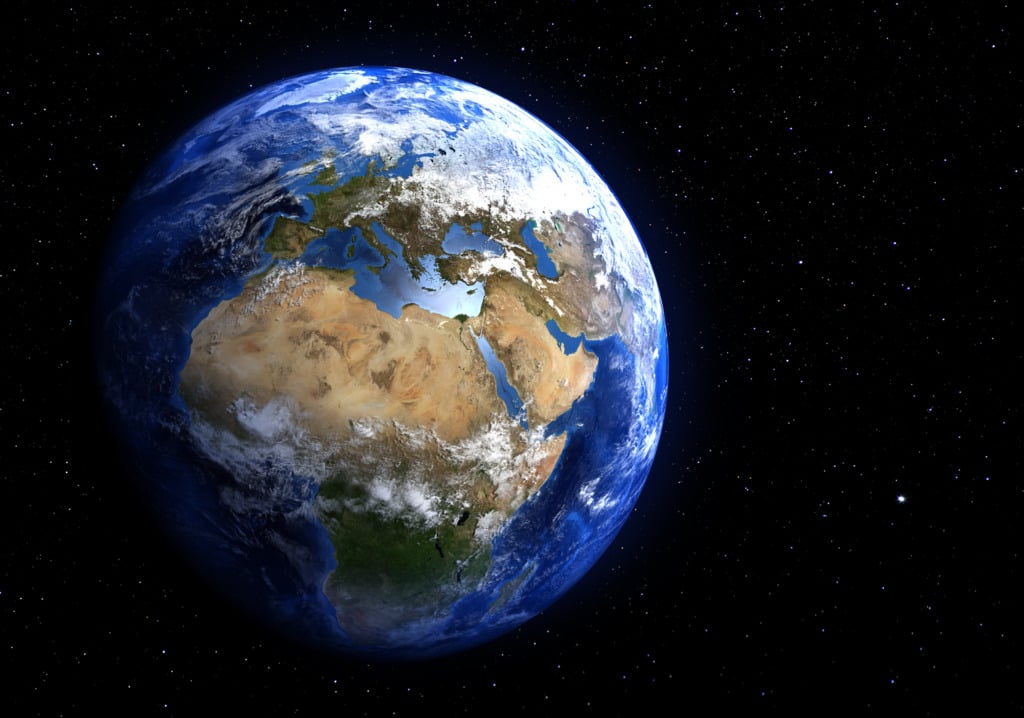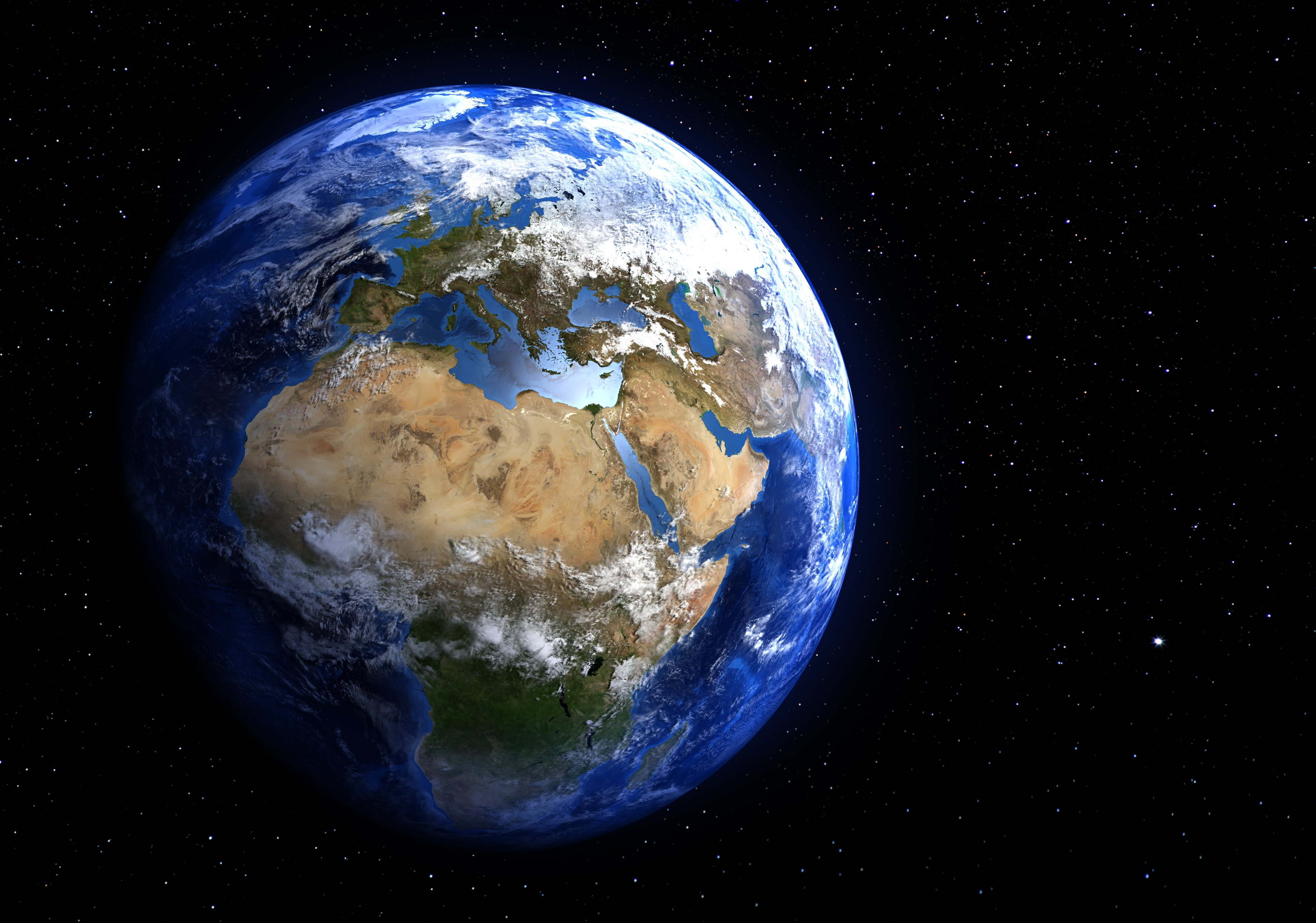A recent TV documentary showed views of the world taken from space; it opened with a shot of the near solar system where we saw a tiny, bright object in the immensity of the mostly inky black space. As the camera zoomed in, the object turned into a beautiful, white and blue globe, as resplendent as a bejewelled sphere against the emptiness of deep space.
This was our earth seen from hundreds of miles out in space – a lonely, fragile, live beauty amid lifeless planetary bodies hurtling around the blinding sun. This the commentary said, was the only home of all forms of life, including ours of course, in the whole of the known universe. With this knowledge, you would think we would cherish every grain of sand, every drop of water, every form of life on this magnificent, perpetually renewing miracle of creation.

But then the camera zooms in closer and the view is no longer as beautiful or sanguine. Through the use of time-lapse techniques and montages, we watch as large swathes of pristine forests are nibbled away as if by ravenous ants and are replaced with human habitation.
We see deserts relentlessly pushing away grasslands and expanding; we see rivers and inland seas drying to trickles; we see deep open gauges in hillsides, like bleeding wounds, as they disgorge their minerals; we see oil slicks pouring over virgin land and smothering it. We see the march of progress as roads and railway lines crisscross the earth and a continuous flow of traffic. We see cities expanding and overflowing to try and shelter the ever rising human populations and farms extending to the far horizons.
We also see acres covered in battlefield tanks, ugly explosions gouging out the earth, destroyed infrastructure, ragging torrents sweeping away whole villages and towns, fields left bereft, wild fires consuming entire forests, islands on the point of sinking and miles of people trudging in every direction to find refuge anywhere.
These are nightmare scenes of the earth under attack from is most successful life form – us.
Is this what we really want?
And through the eye of the camera in space and time lapse photography, we see frenetic activity as people go about their business seemingly oblivious to the dangers eating away at their only home in the universe, the once splendid planet now fighting for its life against ravages that are being caused by us.
It is impossible to watch this scenario and not feel changed by it – the long and wide view allows us to see what we are blind to in our everyday activities. We see what, in the wider context, are trivial disagreements raised to epic proportions and generating furious battles. With our advanced warfare technologies, we know we could blow our planet to smithereens.
The theme of this year’s World Economic Forum in Davos, “Cooperation in a fragmented world” provides just such a platform as our time-lapse camera in space – an opportunity to look at our world, metaphorically and literally, and assess where we are, what we are doing to each other and our planet home, how the consequences are unfolding and ask ourselves honestly if this is what we want in life.
It is an opportunity to take a break from our frenzied occupations, our driving desires, our often manufactured hatreds, our illogical intolerances, our puny hubris and our bottomless greed that is now literally eating through the foundations of our life-support systems of our planet – and change course.
Vicious cycle
But what we can see from space, is lost up close as we engage in the battle for survival. While what from hundreds of miles in space look like puny conflicts, are serious and deadly for those engulfed in them. Most people do not have the luxury of watching the earth from a long distance away – they are embroiled in trying to secure their own Do bigha zamin (Indian for two acres of land) and will fight to the death to do so.
The “fragmented world” of the WEF’s theme applies not only to national conflicts or internal conflicts or ideological or strategic conflicts but also the fracturing of the world into those who have an abundance and those who have nothing.
The International Rescue Committee tells us that there have been some 54 conflicts, 100 million people on the run from conflict or disaster and 340 million people who will need humanitarian assistance in 2023. The 20 countries on its Watchlist that are at the greatest risk of a major new or significantly worsened humanitarian situation in 2023, contain 13% of the global population but account for over 90% of humanitarian need.
All these countries are locked in a vicious cycle – economic turmoil accelerated by climate change leads to conflict; and conflict further exacerbates the effects climate change and economic chaos.
This cycle can be broken, through a determined application of sustainable development – but it needs the cooperation of the whole world and a sincere transfer of resources from where are is an abundance to where there is an acute shortage.
Funding climate change mitigation is not a case of “impoverishing the rich to enrich the poor” as some have claimed but as Anurit Kanti, a WEF Global Shaper, argues, a “positive sum game” where no one wins at the expense of the other: “A scenario where the world cooperates for combating climate change and there is global unity for sustainable development is essentially a positive sum game where the value generated and the benefits accrued are greater than the sum total of all efforts put towards this endeavour.”
Coming together to heal our planet
We did this when the world was faced with one of its greatest dangers – the Covid-19 pandemic. With a marvellous unity of purpose, the world acted as one – “There was no talk of nationality, or race, or religion, or social class or wealth or poverty. There was only talk of us as a species and how to survive the very real existential threat,” I wrote at the time of the 2022 World Economic Forum last May.
We can do it again and eliminate one of the most obscene instances of inequality in history. If we are serious about cherishing and healing this miraculous little blue and white dot in the infinity of space, we need to come together as one and remove the causes of conflict and fragmentation and begin to heal our beloved planet.
As we say in Africa, “I am because we are.”
Anver Versi is editor of our sister publications, New African and African Banker magazines.
Want to continue reading? Subscribe today.
You've read all your free articles for this month! Subscribe now to enjoy full access to our content.
Digital Monthly
£8.00 / month
Receive full unlimited access to our articles, opinions, podcasts and more.
Digital Yearly
£70.00 / year
Our best value offer - save £26 and gain access to all of our digital content for an entire year!
 Sign in with Google
Sign in with Google 



